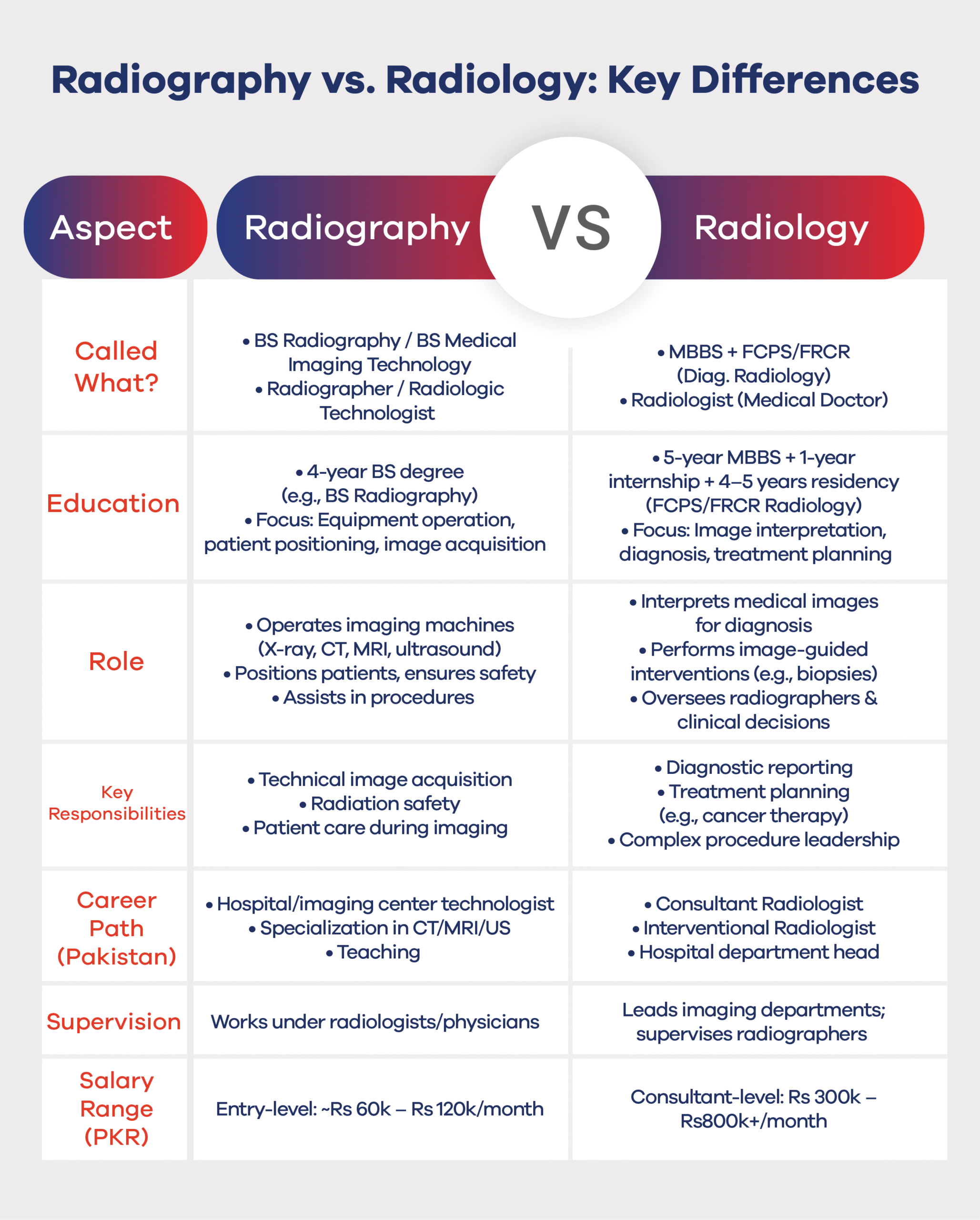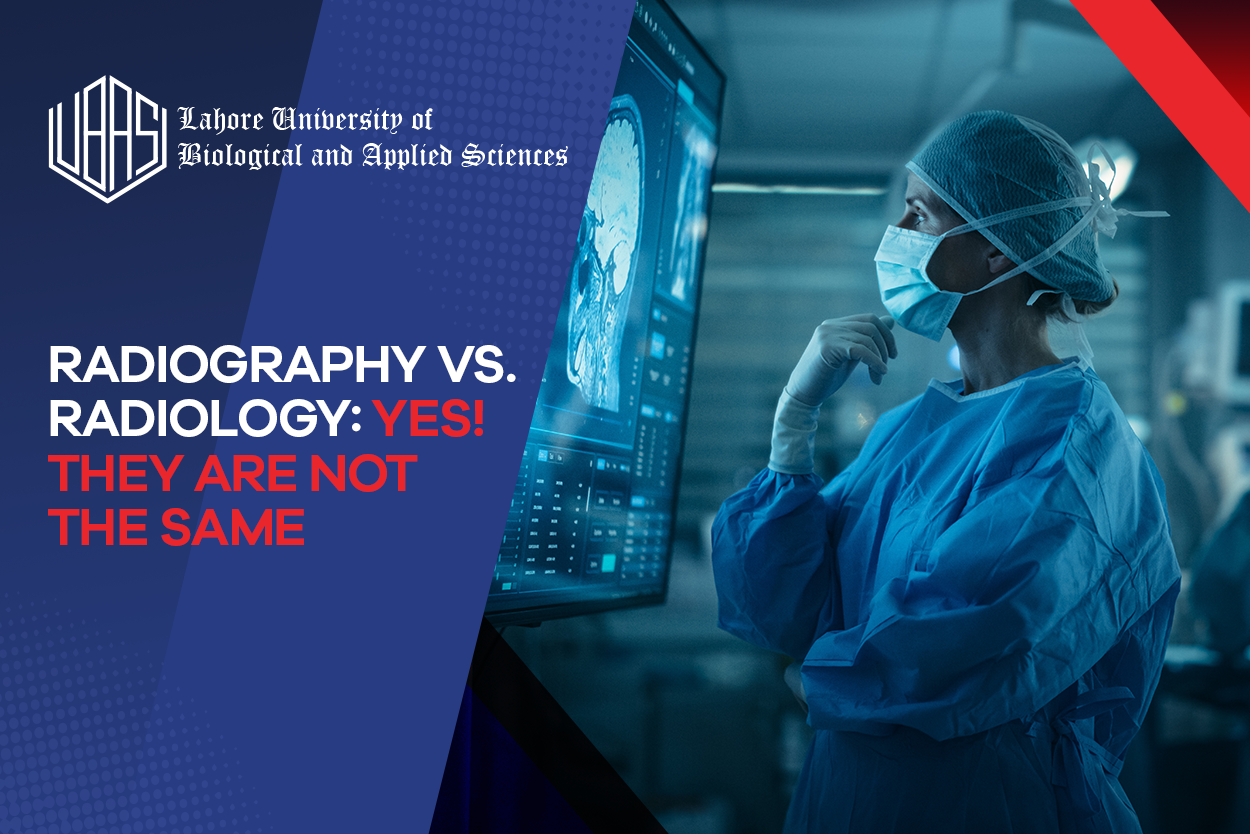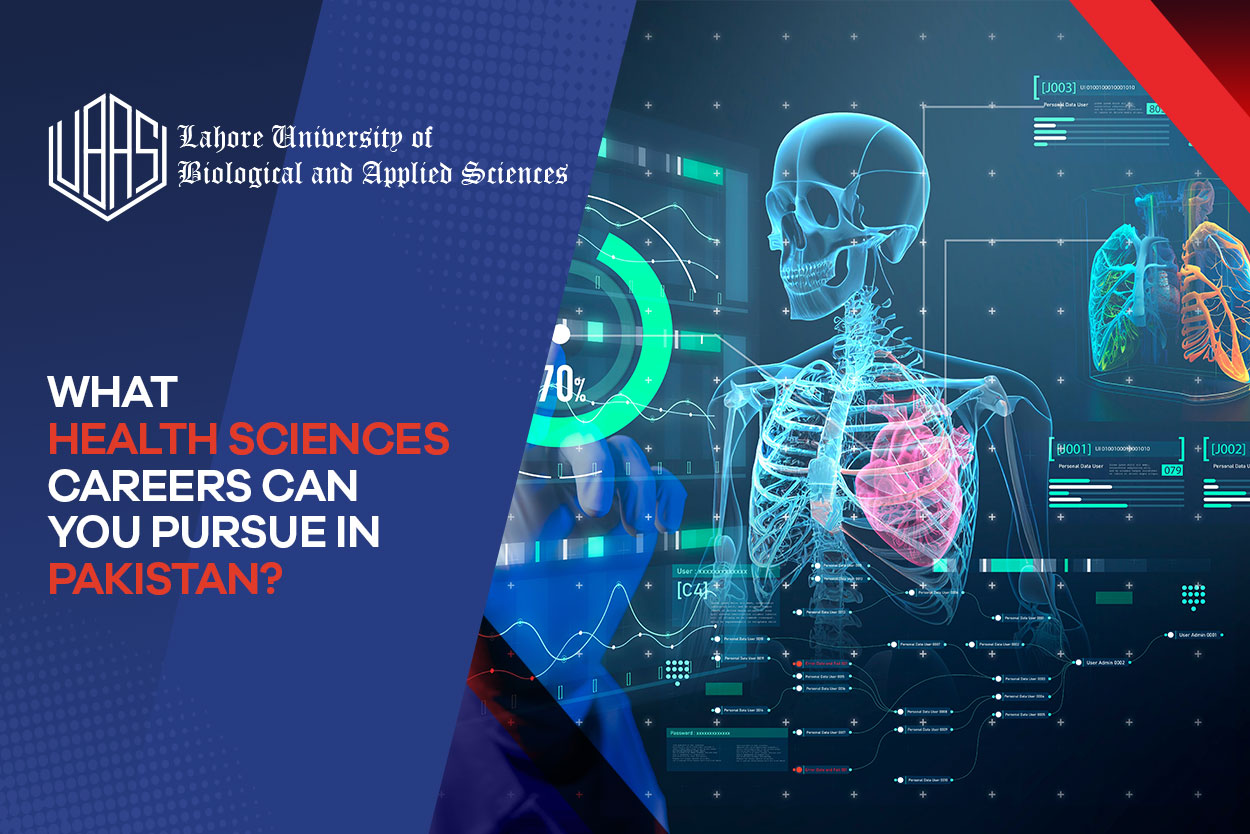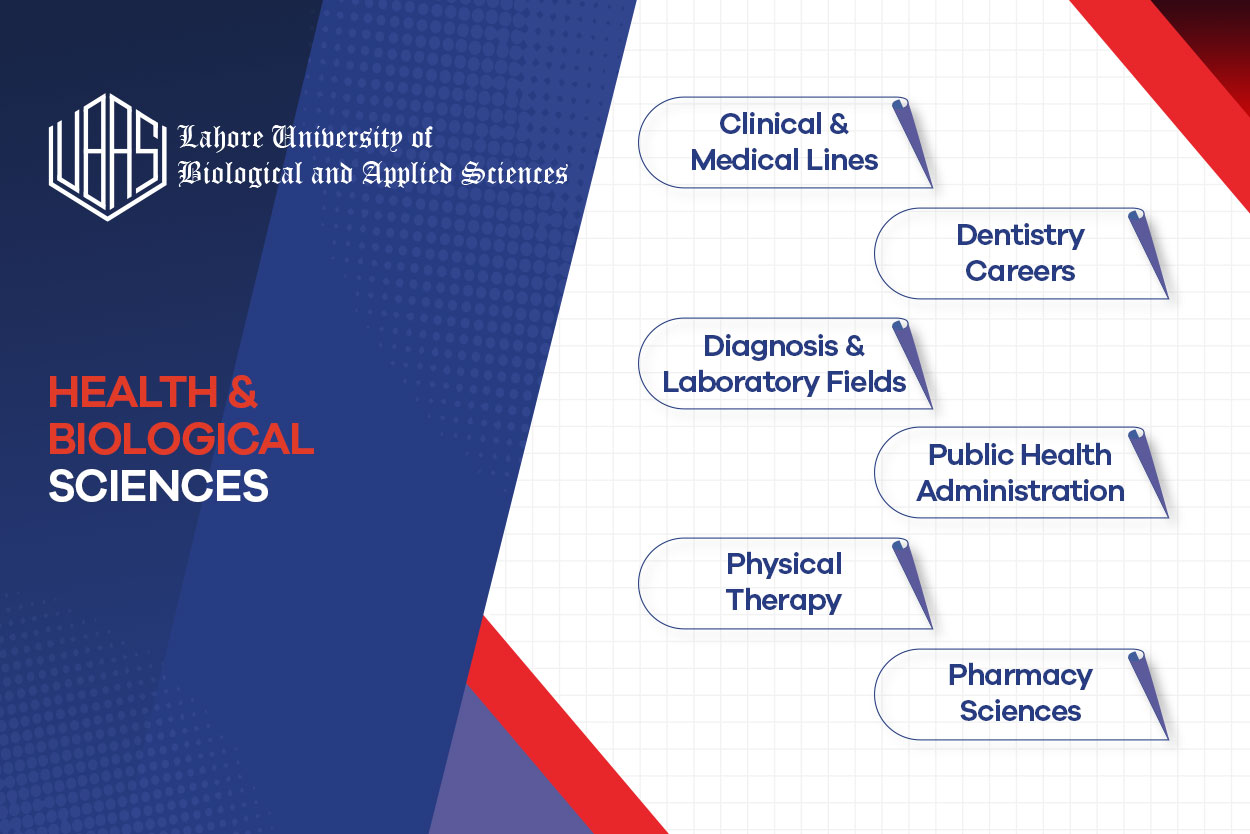If you are an intermediate student, completed FSC pre-medical and looking to pursue a career in imaging technology, then a couple of options would be ideal for you. These options are none other than radiography and radiology. Yes, these two are different terms, though used interchangeably. Therefore, this blog by Lahore-UBAS will help you understand them. Ultimately, you will be able to choose what aligns with your career goals. Also, you will get the direct link to enrol yourself in the BS Radiography and Imaging Technology at Lahore-UBAS.
Radiography Vs. Radiology
Radiology is a major discipline relating to the interpretation and diagnosis in the field of medical sciences. On the other hand, these medical images are captured and processed by professional radiographers.
Hence, radiology and radiography are both fields that are somehow related but not the same. The professional radiologist is called a medical doctor, who specialises in fields to use machines and imaging technologies to see and analyse what happens inside the human body.
On the other hand, the professional radiographer is rather called an allied health professional. They are trained to take the medical images for a diagnosis upon the prescription of a specialised doctor known as a radiologist.
In this way, the radiographers and radiologists work together often. However, they are different.
Difference in Education and Skillset
As you know the radiology and radiography are different from each other. Therefore, the programmes are also different for BS Radiography and BS Radiology. Often the BS Radiography is also known as radiography and imaging technology. Let’s discuss both in the following.
Radiology is a proper medical field to become a doctor. In the US, it takes 13 years to become a radiologist. However, the radiographer can also excel in their own field, taking up to a PhD.
Radiographers have mastery in handling the complex medical equipment. Furthermore, the BS Radiography professionals also have a sound understanding of human anatomy. Therefore, they know how to do the prescribed scans and how to handle the patient with the necessary protocols for accurate results. On the other hand, the radiologists interpret the results of the scans to analyse the body conditions and to diagnose diseases with accuracy.

Scope of Growth for a Radiographer
Radiographers are needed across the globe, including Pakistan, USA, UK, Canada, Australia, UAE, Saudi Arabia, Qatar, Germany, and the Netherlands. The radiographers are likely to experience faster growth in careers in Radiologic and MRI technologists in the US till 2033.
Skills and Job Opportunities for Radiologists
On the other hand, Radiologists are also required in diverse medical settings. However, to work abroad, you will also need to fulfil the regulatory requirements of your specific country.
By professionals, radiologists would be licensed doctors. The opportunities and scope of growth are positively inclined in countries like the USA. According to the US Bureau of Statistics, radiologists have an increase in demand, which is around $392790 annually. For more exposure and industries, you can read online. You can explore the types of radiologists online.
The highest salary scale for radiographers in Pakistan is around PKR 120k annually, as per the records in 2025. On the other hand, the radiologist can make up to PKR 10,992,420 annually once they reach the senior level.
Looking for the Best University for Biological and Health Sciences in LHR?
There are many universities in Pakistan offering BS Radiology and BS Radiography, and Imaging Technology. In Lahore, UBAS is the top university for allied health sciences and biological sciences with a BS Radiography and Imaging Technology (BS RIT).
BS Radiography and Imaging Technology (BS RIT)
The BS in Radiologic Science has a rich, industry-relevant course that enables students to get skill mastery in equipment handling, management, and patient handling in MRI and outpatient setups.
The course curriculum can be explored from our website. You can also look for the eligibility criteria and fee details at Lahore-UBAS.
Lahore-UBAS also offers scholarships and options for financial support. Look into details for scholarship policy. We at Lahore-UBAS combine education with practical skills. These practical skills are highly developed in the stimulated, controlled settings to work at the on-site hospital at Lahore UBAS.
Moreover, students will enjoy a perfect balance of education and extracurricular activities, with personality development during their stay at UBAS in Lahore. We offer:
- Quality Education
- Experienced And Real-world Mentorship
- Ideal Student-teacher Ratio
- Scholarships
- Modern Education with Student-focused Learning Methodologies
- Easy Market Placement and Internship Facilities.
Fall Admissions 2025
The Fall admissions 2025 are now open. Lahore-UBAS is accepting online applications for Fall 2025. Apply through the online portal and get yourself enrolled in the top university for allied health and biological sciences in Lahore.
Conclusion
Radiography and Radiology are two distinctive terms and are often used interchangeably. However, these are different professions, with separate job descriptions, salary ranges, and scope of growth. Lahore-UBAS offers admission applications for BS Radiography and Imaging Technology in fall 2025.





